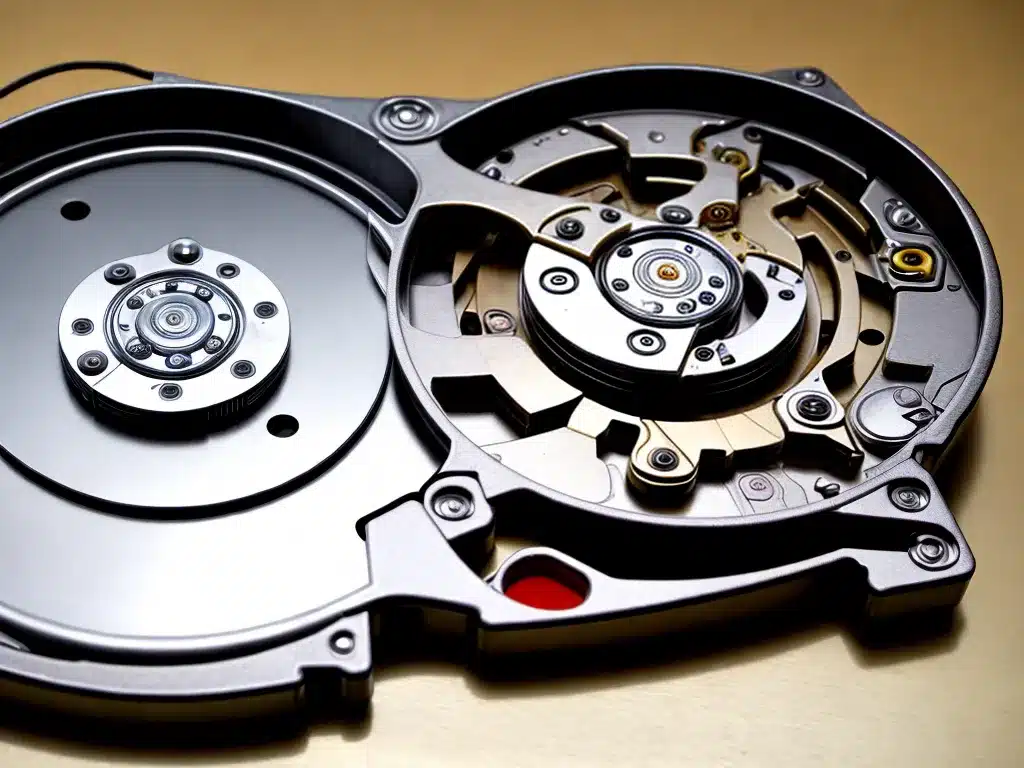
Why Speed Matters
A slow hard drive can really bog down your computing experience. As your hard drive fills up, it takes longer to access files and apps launch more slowly. With today’s large programs and high-resolution media, an old mechanical hard drive is often the bottleneck in an otherwise fast computer.
Improving your hard drive’s performance provides a cheap way to speed up an old computer before you’re ready to replace it. A faster hard drive improves boot times, app launch times, and file access speeds. It makes your computer feel much newer.
Upgrade to an SSD
The best way to dramatically speed up an old mechanical hard drive is to replace it completely with a solid state drive (SSD). An SSD has no moving parts and uses flash memory, so it’s much faster than a traditional spinning hard disk.
Replacing your hard drive with an SSD will provide the biggest performance gain. Boot times will be significantly faster, apps will launch instantly, and file copying will no longer take as long.
However, SSDs are more expensive than hard drives. Cost per gigabyte is improving but is still higher for SSDs. So make sure to get an SSD with enough capacity for your needs if you decide to upgrade.
Defragment Your Hard Drive
Defragmenting your hard drive rearranges files on the disk so that all the pieces of a file are stored contiguously. This optimization makes hard drive access faster.
Over time as files get moved around and deleted, pieces of files can become fragmented across the hard drive. Defragging consolidates these fragments so each file occupies one continuous space on the disk.
To defragment your hard drive on Windows, open the Optimize Drives utility. On Mac, use the built-in Disk Utility to verify and repair disk permissions and run First Aid.
Regular defragmentation helps, but SSDs don’t need to be defragmented so upgrading to an SSD provides a more permanent fix.
Add More RAM
Increasing your computer’s RAM helps speed up your hard drive because it allows more activity to happen in your computer’s fast DRAM memory instead of needing to read from the slow mechanical hard drive.
With more RAM, more files, apps, and browser tabs can be cached in faster memory instead of being swapped out to the hard drive. So when an app needs to access a file, it’s more likely to already be loaded in RAM.
Adding as much RAM as your computer supports will provide a cost-effective speed boost. But upgrading your RAM likely won’t help boot speeds since most activity during boot relies heavily on the hard drive.
Replace Failing Drives
If your hard drive is failing and has a lot of bad sectors, its performance will suffer substantially. Errors trying to read from bad sectors causes everything to slow down.
Check your hard drive’s S.M.A.R.T. status and run disk scanning utilities like CHKDSK frequently. If the drive has high error rates indicating failure, replace it immediately before an outright failure causes data loss.
Replacing a failing drive provides a big speed boost since your computer no longer has to deal with disk errors all the time. But even a brand new mechanical hard drive can’t compete with the speed of an SSD.
Clean Up Your Drive
A cluttered hard drive that’s almost full can slow down performance. When the drive is close to capacity, it takes longer to find free space for new data.
Delete unused files and applications that you no longer need. Downloading a disk cleanup utility can help you find and purge useless system files as well.
Regularly cleaning up your hard drive improves overall efficiency and lifespan. But to really get back performance comparable to a new computer, you’ll want to upgrade to an SSD.
Conclusion
- Replacing an old mechanical hard drive with a new SSD provides the biggest speed gain.
- Increasing RAM helps since more activity can happen in faster memory instead of reading from the slow hard drive.
- Defragmenting optimizes file storage on the drive to improve access speeds.
- Check for and replace any failing mechanical drives.
- Clean up unused files and applications to improve drive efficiency.
While these tips can help speed up an aging mechanical hard drive, upgrading to an SSD is the best way to dramatically improve performance. The flash memory technology in SSDs leaves traditional hard drives in the dust.












